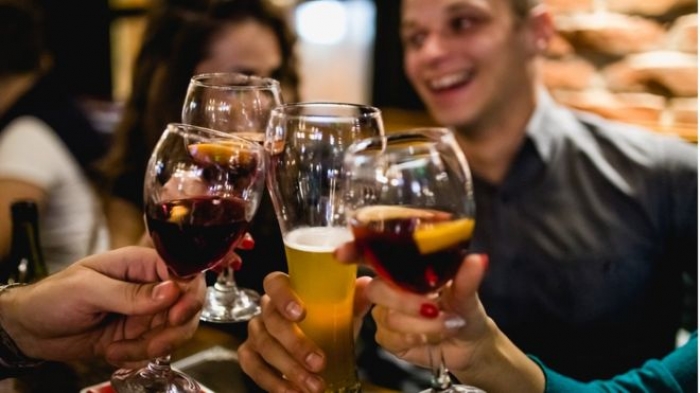The National Institute on Alcohol Abuse and Alcoholism defines binge drinking as “a pattern of drinking that brings a person's blood alcohol concentration to 0.08 grams percent (0.08 grams per 100ml of blood) or above,” which typically happens “when men consume five or more drinks or women consume four or more drinks in about two hours.”
When seen in that light, it’s clear more people are binge drinking than we think. The Centers for Disease Control and Prevention says one in six adults binge drink about four times a month, consuming about seven drinks per binge. That’s “17 billion total binge drinks consumed by adults annually.”
In the latest study, researchers focused on two genes thought to be involved in controlling drinking behavior: PER2, which influences the body's biological clock, and POMC, which regulates our stress-response system.
The researchers tracked changes in these genes in groups of moderate, binge and heavy drinkers, and found that both genes were altered in binge and heavy drinkers through a process known as methylation. The heaviest drinkers also showed reductions in the rate at which the genes create new proteins, known as gene expression. In effect, binge drinking stunted both genes.
The study also included an experiment designed to monitor the participants’ motivation to drink after being exposed to alcohol-related images and beer taste tests. The researchers found that changes in the genes lined up with a greater desire to drink alcohol among the binge and heavy drinkers.
If this research is correct, one way to see this is that binge drinking has a way of deactivating the genetic security system that normally regulates how much we drink. Once that happens, the internal craving monitor is tuned down, and cravings for the very thing that's changing us increase.
"We found that people who drink heavily may be changing their DNA in a way that makes them crave alcohol even more," said Professor Dipak K. Sarkar, senior author of the study and director of the Endocrine Program in the Department of Animal Sciences at Rutgers University-New Brunswick. "This may help explain why alcoholism is such a powerful addiction, and may one day contribute to new ways to treat alcoholism or help prevent at-risk people from becoming addicted." More research will surely follow to replicate these results and evaluate potential changes to other genes as well.
The takeaway from all of this is easy enough to see, though—in light of the enormous numbers of people binge drinking every week of the year—difficult to put into practice. Binge drinking isn’t only dangerous in the short term, but it may also change us at the most basic level, catalyzing a self-reinforcing pattern that doesn’t let go.
Forbes
More about: drinking
















































